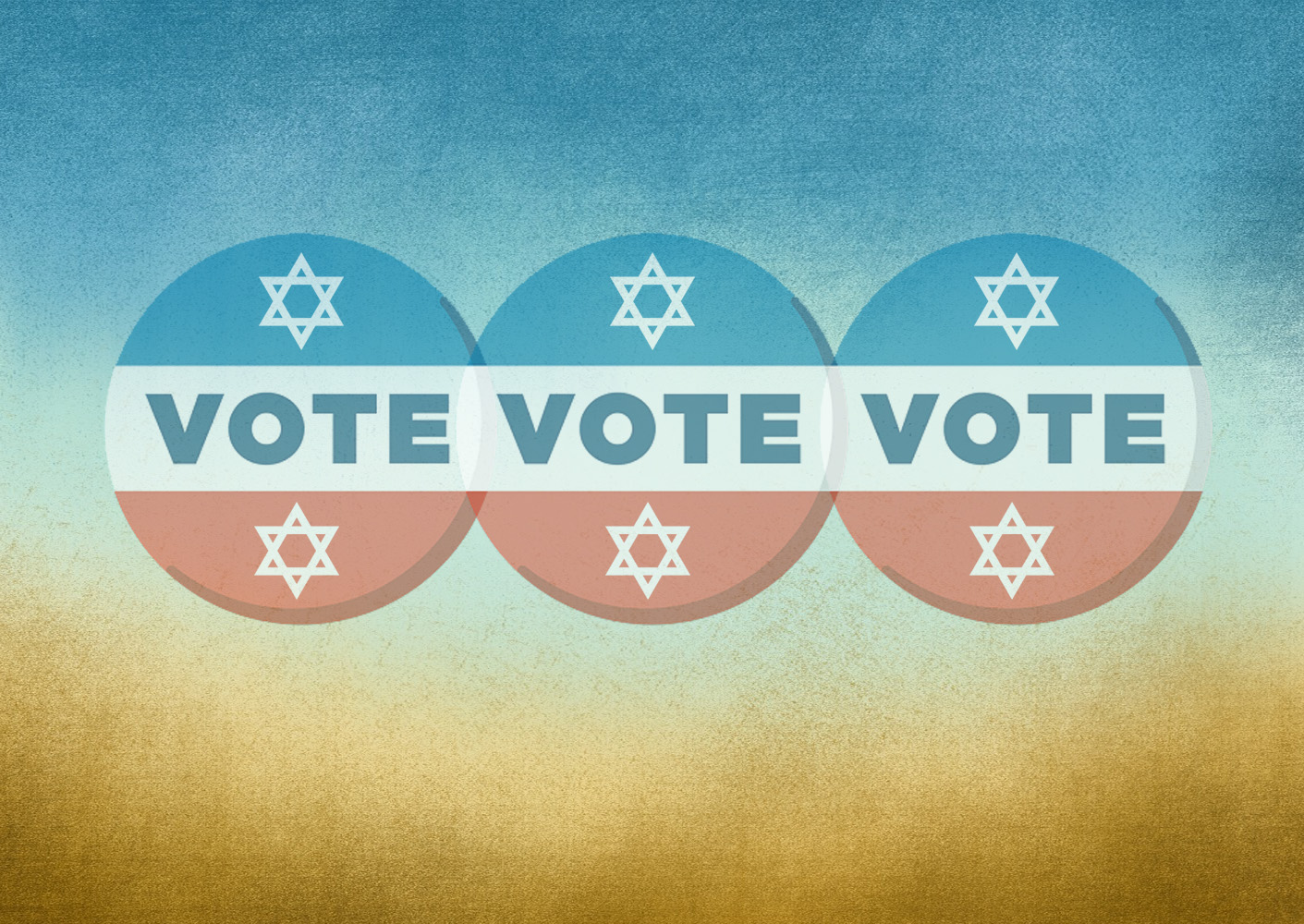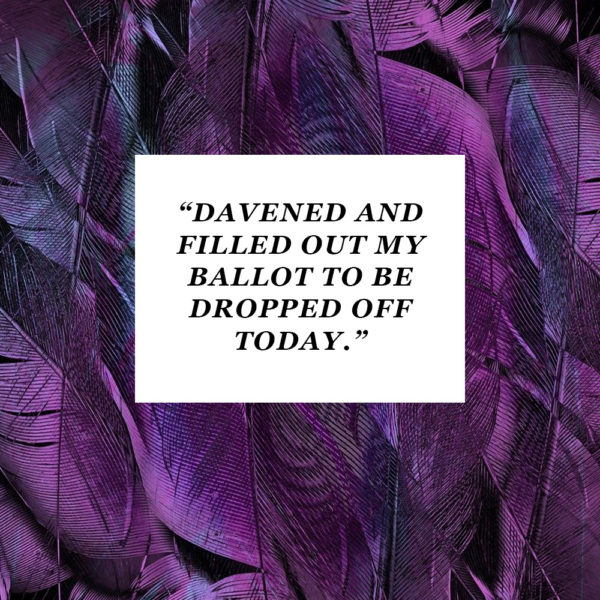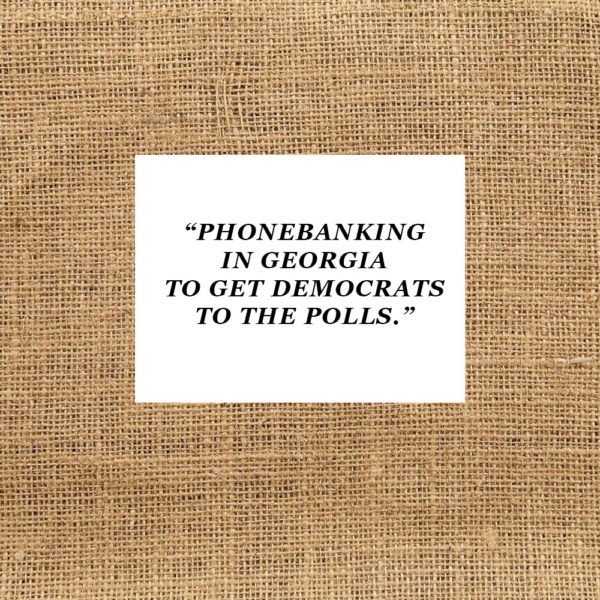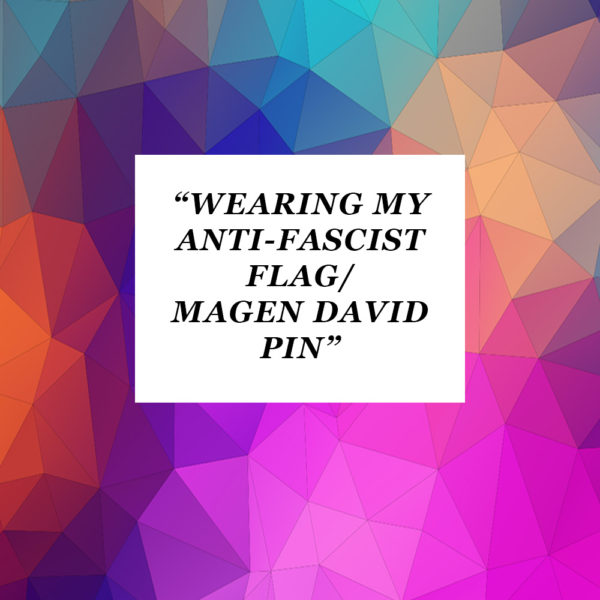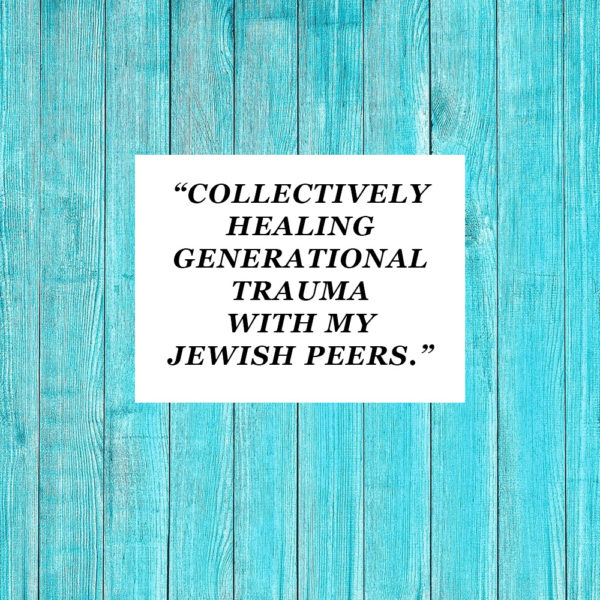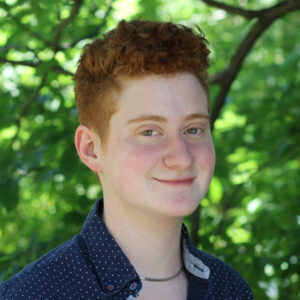Part one of New Voices Magazine’s 2020 Election coverage, reporting on Jewish student responses to this historic event. You can read part two here.
The day before the election, the New Voices social media feed is full of anxious witticisms; how it’s impossible to think of three more people to pester about voting, the no-surprise of antisemitism, memes about living on the brink of civil war. Between posts, articles give information to last-minute voters and the occasional advice on how to stop a coup. Twitter is always frenetic, but the fragments of civic life evidenced in the long scroll have a different tenor today. America, and especially American Jews, are bracing for the terrifying tumult of what comes next.
The following morning, news of a synagogue shooting in Vienna, Austria drowns in a slurry of election-time posts. Everything is already at-capacity. A zoom session entitled “Daily Jewish Grounding for a World on Fire” launches bright and early, hoping to soothe frayed nerves. Slowly, as the sun rises, voice notes from Jewish students across the country trickle onto the New Voices Editorial desk.
From five different campuses, New Voices reporters were tasked with sending recorded updates over Whatsapp, both personal and political, painting a picture of how the election is impacting their campus, their communities, and themselves.
“Good morning, election sameach. It’s about 8:30, but I’ve been up for several hours.” Al Coffey, a senior at Hampshire college, reported early on Tuesday. “I just finished a few minutes ago davening, praying. I try to do it pretty regularly but this morning I was thinking, why am I doing this? I know today it was because it would make the rest of the day feel more approachable.”
There’s a surrealism and suspension to the day consistent across reports. “I feel like I’m floating on water.” Al says. “When you’re floating on your back, the water supports you and holds you, but it’s also fluid, it’s not solid. It’s constantly in motion. So I’m aware that it’s shifting beneath me. But we are also made of water. And so the thing that supports us and the thing that we are is the same substance. We can’t separate ourselves from what happens around and beneath and above us.”
This non-separateness of the personal and political stream contributes to a tenor of both anxiety and action. Jonah Karsh, a student studying remotely at University of Miami, reflected on this election’s precarity. “My safety is endangered by the Donald Trump regime, by the antisemitism and white nationalism that he has normalized in our society. I worry even more for marginalized communities on the front lines that are affected even more than I am. I grew up understanding this myth that I lived in a democracy. Of course, it’s always only been a democracy for some, but we usually have peaceful transfer of power. That’s not something that we can guarantee this time.” However, the uncertainty has spurred Karsh into movement. “I’ve been phone banking, I’ve been organizing through JStreetU, just very much feeling nervous.”
Karsh is among many Jewish students taking electoral action beyond simply casting a ballot. Eliza MacGilvray of Yale University describes attending a virtual text-banking event hosted by her synagogue called “Mitz-Vote”, which she found inspiring, despite a title she described as the worst pun she had ever heard. “It was a zoom call about 10 people, I was the only person in the 18 to 24 bracket. Everyone else was Jewish grandparents who barely knew how to use their phones. But all of them were just so excited to get involved and start texting as many people as possible. One of the women was like, ‘I’m going to use this every single day because I need to know that I’m doing everything I can to fight for Biden in this election.’”
Other students have engaged in similar work but felt less optimistic. “I did phone banking in Iowa and text banking and text banking in Ohio,” remarked Ellanora Lerner, a first-year at Clark University. “It feels a little weird. I don’t necessarily feel like it’s helpful. But I know that people say it’s helpful who know what they’re talking about. So I try to do it anyway.”
Electoral ambivalence is standard for today’s Jewish students. Terms like “mutual aid” and “community care” strike deeper chords than the age-old rhetoric of “Just Vote!” as the first line of civic defense. In an election where physical safety grows increasingly uncertain, tangible plans for protest and protection after the election seem more pragmatic as threats of violence and a coup stoke intergenerational fears.
When asked whether one’s Jewish identity impacted feelings towards the election, Maxine Scherz, a third-year at Earlham College, felt a historical linkage. “This is very scary. And it reminds me of what my grandparents talk about, and what my parents’ fears are. Being Jewish has made me very aware of the current times and how things are trending. Just the uptick in antisemitism that I’ve noticed since Trump was originally elected has been very concerning to me. And even more than the antisemitism, the blatant racism and xenophobia is very scary.”
Whisperings and echoes of impending civil war have haunted the internet’s landscape and reverberate in the thoughts of young Jews. “I’ve been thinking about how after the election of 1860, when Abraham Lincoln was elected, all the states seceded into the confederacy between the immediate wake of the election and when he was inaugurated in March of 1861,” Al Coffey said, speculating on the growing sense that the upcoming months may see more extralegal violence than elections in recent memory, with Jewish organizations preparing for the worst.
As frightening as this election feels for American Jews, many white Jewish students are philosophically conflicted about how to balance their own personal fears with the knowledge that many other groups, especially Black and brown Americans and immigrants, are far more likely to experience violence post-election in either turnout. “I’m thinking about my own privilege in this election, how some of the most horrific policies would not affect me. I think a lot of people are thinking along those same lines.” Coffey corresponded in the afternoon.
Still, being a Jewish student in majority-white locales, even urban ones, can be jarring. At University of Wisconsin-Madison, non-Jewish Greek houses down frat row boast unmasked parties and yard cookouts, reveling in the election as a holiday. These celebrations strike dissonance for students of more marginalized identities, whose safety may be at risk regardless of the outcome.
Some Jewish students studying in more rural counties find themselves feeling alienated and far from home. Emma Milner-Gorvine, another student at Earlham college in Richmond, Indiana, felt out of her depths as a Jew in the county Mike Pence is from and where his brother serves as a national representative. “I’ve seen more Trump signs here than I’ve seen in my life. I think about a few years ago, getting called a kike in the Walmart. Just how that interacts with my white privilege; but also, to white supremacist, being a white Jew isn’t being white enough.”
This election sparks both immediate and long-term questions of safety. For many young voters, climate change looms large on the ballot, which, despite its status as a generation-defining issue, has only recently become a significant topic of discourse in American electoral politics. “I’m incredibly passionate about the environment and ensuring that we don’t continue to do irreversible damage,” says Gabby Grunfeld, a first-year at Brandeis involved in several political campus political organizations, including Jews for Joe, The Innocence Project, and a gun violence prevention group. “We need to do everything we can to vote to ensure that there are strict regulations on many of the big oil companies and other damaging companies that are hurting our ecosystem.”
As polls approach their close, some students hesitate on attending socially-distanced election-viewing events while others plan escapist comedy movie nights with their dorm or housemates. Some pack “go-bags”, filled with essentials in the case they need to quickly leave their homes, while still more prepare to take to the streets Wednesday morning and engage in peaceful protests in the case of a coup.
“We live in a very high stakes time right now.” Maxine Scherz said. “I’m very worried that Trump will win. And I think that a lot of violence will come out of this election no matter what.” ⋄
You can read part two of New Voices Election 2020 Coverage here.
